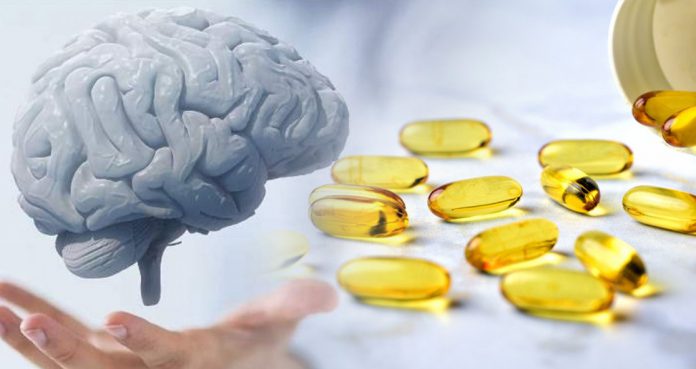It is well-documented that omega-3 fatty acids play a key role in the body’s structural integrity and performance. And one such omega-3 fatty acid, called Docosahexaenoic Acid (DHA), has been found crucial for boosting your brain health at any stage of your life.
Our body makes a very small amount of DHA from other fatty acids, which is why most of us need to take DHA supplements.
Since DHA, in particular, has been found to help build and preserve brain health, one can use supplements continuing this omega-3 fatty acid for optimal functioning of the nervous system. It helps nourish brain cells and nerve cells.
If taken along with other omega-3 fatty acids such as eicosapentaenoic acid (EPA) and alpha-linolenic acid (ALA), DHA could help reduce inflammation and the risk of developing chronic conditions, including heart disease.
Among all the three main kinds of omega-3 fatty acids, DHA is unarguably the most important nutrient for brain health. It is one of the major structural components of the cerebral cortex, which is responsible for language, memory, creativity, emotion, and attention.
What are the benefits of DHA on brain health?
As mentioned earlier, DHA plays a key role in brain cell communication so it helps support the secretion of important brain chemicals, aka neurotransmitters, such as dopamine, serotonin, gamma-aminobutyric acid (GABA), acetylcholine, and norepinephrine.
By improving the secretion of these neurotransmitters, DHA allows the brain to better use them, making your central nervous system strong.
DHA is crucial for the development of the brain in newborns, which is why new mothers are often advised to take DHA supplements. This omega-3 fatty acid is one of the natural components of breast milk, which is often added to baby formulas.
Several studies have found that DHA supplements are effective for children with ADHD by improving their attention, hyperactivity, sleep and defiant behavior.
Research shows evidence that a lack of DHA in adults could lead to cognitive impairment and mental health issues. DHA deficiency could also impair memory and the ability to learn, think, and multitask. In addition, low DHA levels have been associated with anger, aggression, depression, and ADHD.
There is strong evidence that taking DHA supplements could you happier and smarter by improving the secretion of your brain chemicals. People with DHA deficiency have a smaller brain, making them age much faster than usual. Naturally, the brain shrinks as the age progresses but DHA helps to preserve brain mass and volume. Also, it has been found to increase brain plasticity, promoting the formation of new brain cells and neurons. Undeniably, DHA is a very crucial nutrient for your brain health. But, do you really need a DHA supplement? Or can you get it from food alone? Well, DHA supplements are generally safe but there are a few restrictions its use. Therefore, it is better to check with your PCP once to determine whether you can take DHA supplements.























